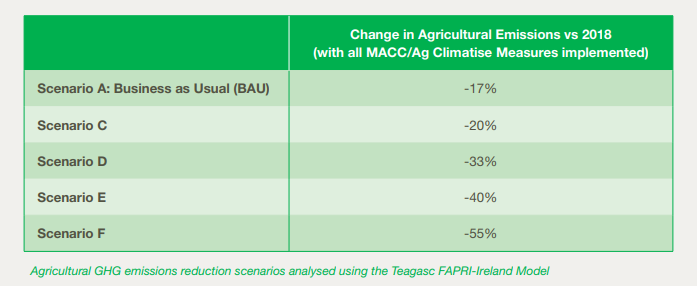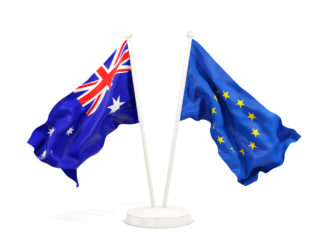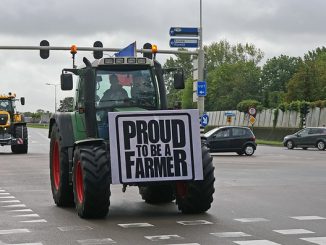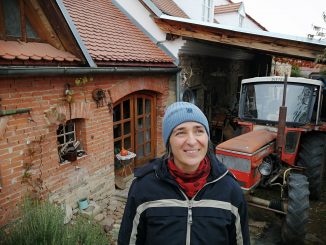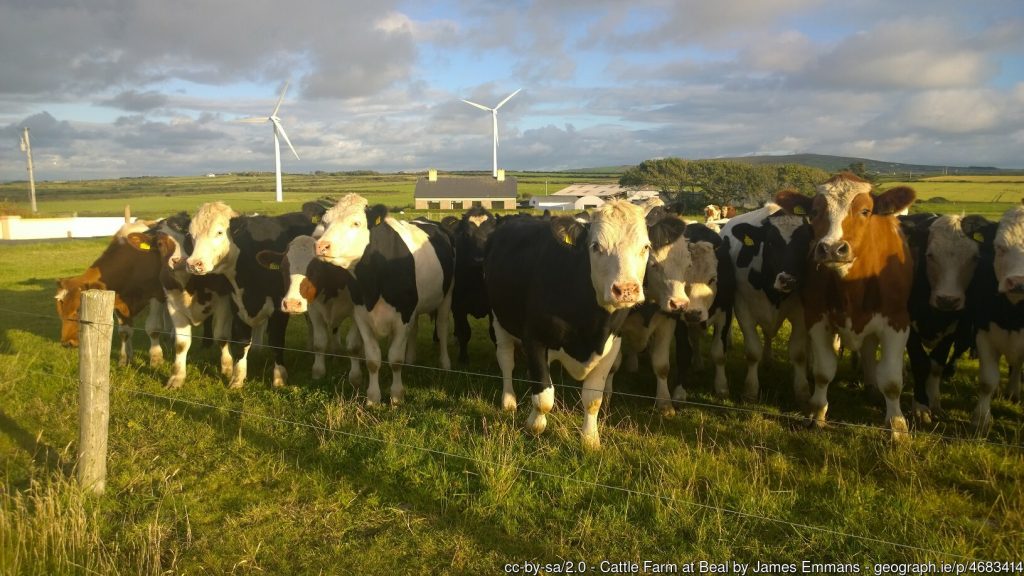
Not all agri-sectors have the same impact. As the debate in Ireland over greenhouse gas emissions cuts for different parts of the economy intensifies, who is thinking about the fair share of cuts within economic sectors? Here we republish an article from Rural Ireland on the Move, our report from April this year. In it, Fintan Kelly – agriculture and land use policy and advocacy officer with the Irish Environmental Network – examines what the fair share of emissions might be between dairy and suckler farming.
In Ireland, agriculture accounts for 32.6% of total greenhouse gas (GHG) emissions, 90% of methane emissions and 88% of nitrous oxide emissions*. Eighty five per cent of Ireland’s agricultural GHG emissions are associated directly or indirectly with bovine agriculture, with changes in agricultural emissions over and above those delivered by mitigation measures being driven by changes in cattle numbers. Given the high percentage of national emissions emanating from agriculture, and the strong link between the number of bovines nationally and total GHG emissions, the Climate Change Advisory Council (CCAC) advises that an absolute reduction in the number of cattle will be needed in addition to proposed efficiency measures.
( *the figure quoted here is from 2018, and was used in the Climate Change Advisory Council report on carbon budgets from October 2021. Since publication in April, more recent figures have been released by Ireland’s Environmental Protection Agency (EPA). These show agricultural emissions for 2021 at 37.5% of total greenhouse gases. For the CCAC report see here: Technical report on carbon budgets 25.10.2021; the latest EPA info is available here)
Under the carbon budget scenarios, where agricultural emissions are required to reduce by 30% or more, suckler cow inventories decline from just above one million in 2018 to circa 200,000 by 2030. There is a larger spread in the magnitude of the reduction required in dairy cow numbers. To achieve a 51% reduction in agricultural GHG emissions (to be approximately pro rata with the total emissions reduction required by 2030) requires that dairy cow numbers are reduced to circa 650,000 by 2030, compared to just over 1.4m in 2018.
According to the CCAC: “The legislation requires that the carbon budgets take into account, insofar as is practicable, the need to maximise employment, the attractiveness of the State for investment and the long-term competitiveness of the economy.”
The focus on economic output and job creation has biased the scenarios in favour of dairy production, placing a disproportionate burden on suckler farmers when it comes to destocking. The CACC has interpreted the need to maximise employment and State investment at an aggregated national level. This bias in favour of overly simplistic economic indicators fundamentally undermines the scenarios, which fail to consider the need to ensure equity in opportunities and burden sharing at a regional level.
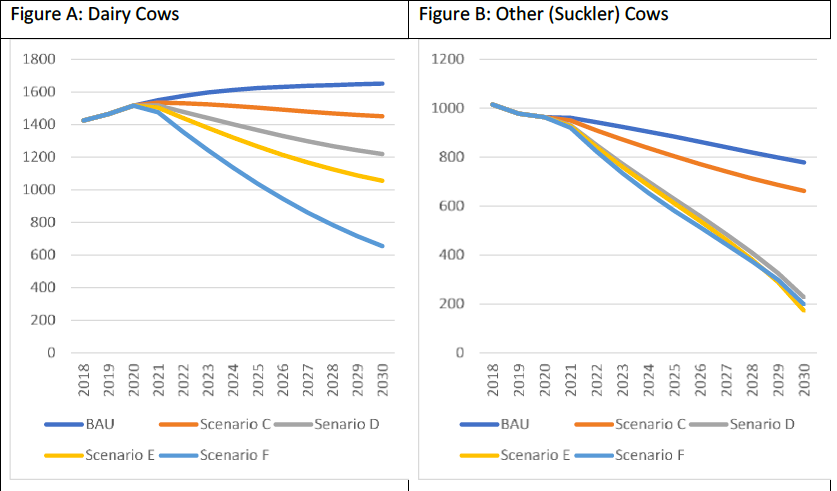
Intensive dairy production is concentrated in the regions of the country with the most productive land, with the dairy processing sector mirroring the distribution of the dairy sector. The CCAC has identified that emissions from the dairy sector will also need to be offset within the land use sector, primarily through the management of high carbon soils and afforestation of marginal land. In effect, while the economic opportunities presented by the dairy sector are concentrated in the wealthiest parts of the country, the burden of offsetting the resulting GHG emissions fall to farmers who are the least economically productive and who have been historically marginalised by a range of factors such as the physical constraints on farming or socio-economic isolation. This raises serious questions in regard to the absence of a just transition within the framework of Irish climate action.
We believe that the scenarios produced by the CCAC and Teagasc do not reflect the complex multifaceted legal or policy framework that underpins our modern democracy, and our aspirations for a fair and sustainable rural economy. It is our view that a just transition requires policies that ensure that there is equity and equality in the responsibility and opportunities presented by the agri-food sector and climate action.
The scale of the changes proposed by the targets set for reduction in the suckler herd, afforestation, and the rewetting of peat soils, will have wide ranging implications for the socio-economic and environmental well-being of affected communities. The CCAC has given some recognition to these concerns. But they raise the need for government policy to mitigate negative impacts rather than ensuring that positive socio-economic and environmental outcomes across all regions are prioritised in tailored scenarios.
We would like to see scenarios that maximise the environmental benefits of sustainable farming practices, and environmentally beneficial land use and habitat management. Reducing agricultural emissions by destocking farms where environmental indicators such as water quality, air pollution and soil type indicate that the intensity of farming has exceeded the environment’s carrying capacity would deliver additional benefits for the environment and communities.
We would like to see scenarios that recognise the multitude of environmental and cultural goods and services such as carbon sequestration, flood attenuation, biodiversity and recreational space that are supported by some farmers. We need to give greater recognition and support to farmers who provide the greatest public goods and services to society, ensuring a just and a sustainable transition for farming in response to our climate and biodiversity crises.
Fintan Kelly is the agriculture and land use policy and advocacy officer at the Irish Environmental Network. The report Rural Ireland on the Move, where this article first appeared, is below.
More on Ireland
Rural Ireland on the Move – new report on Just Transition and Diversification launched.
Part 3 | Ireland, Food Security & Feed(ing the World) – Is Ireland Feeding Food?
Letter From The Farm | Watching, Waiting and Knowing When To Help
Feeding Ourselves 2022 – Crises Compound, Food Sovereignty Movement Mobilises
Changes “required” to Ireland’s CAP Strategic Plan – European Commission
CAP, Fairness and the Merits of a Unique Beneficiary Code – Matteo Metta on Ireland’s Draft Plan

